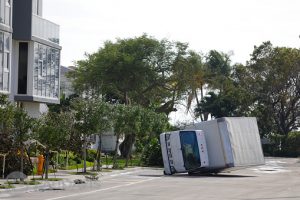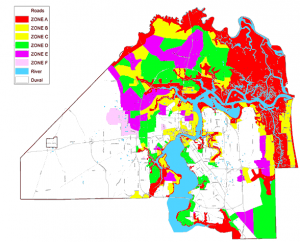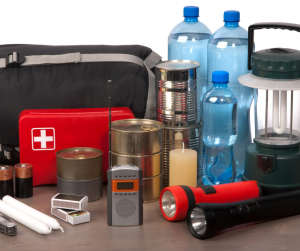Hurricane Preparedness Information

A severe hurricane with related wind, rain and flooding may soon bring highly destructive impact to residential property throughout your area. We want you to know, at Paul Davis we are fully staffed and equipped to mitigate damage, secure property from post-storm effects and provide restoration services to allow your clients’ homes to be cleaned and properly restored. Because hurricanes can be life-threatening, it’s always good to be prepared when you live near a coastline. Unfortunately, most people don’t get ready for a hurricane until the last minute. Often this is because they didn’t know they were supposed to. Other people don’t know how to prepare. Luckily, there are multiple things you can do to stay safe.

Know Your Area
Are you unsure as to whether your home could be affected by a hurricane? While some areas are more prone to hurricanes, you might be surprised about how far a hurricane can reach. If you live in a coastal state, it’s imperative that you know your zone. And you should also look into evacuation routes for your area.
Purchase A Generator
So you’re in a potential danger zone. Trust us: you don’t want to be hoping for the last generator in your local home supply store when a hurricane is barreling down on your area. Providing power when your electricity goes out, a generator is often a necessary component of hurricane survival. This is especially true if anyone in your family has special health needs such as a CPAP machine or an oxygen tank. But most people wait until the last minute to purchase theirs. Get one early so you have it on hand.

At a minimum, your supply kit should contain enough nonperishable food and bottled water to last your family for three days in the event of an evacuation. Create a kit that can sustain your family for up to two weeks in the event you decide to ride out the storm in your home. Flashlights, extra batteries, and a first-aid kit are also must-haves. Include copies of personal documents like birth certificates, passports, driver’s licenses, and insurance information. Consider additional needs your family may have such as extra clothes, hygiene products, pet food, and even portable chargers.
Keep Insurance Policies Up To Date
Too often, it’s not until a hurricane strikes that a family finds out they don’t have flood coverage. Or a homeowner realizes their policy lapsed prior to bad weather striking. In both cases, people find themselves spending a lot of money out of pocket. It’s important to review your insurance policies about every six months. Make sure everything is up-to-date, that you have all necessary riders, and that you understand your deductibles. Be sure to work with an agent who is willing to help you understand your policies and how they could be implemented.
Sign Up For Alerts
It’s smart to know when the weather is getting better or worse. And with smart technology, you can sign your family up to receive alerts on your phone in the event bad weather strikes your area. Keep in mind that your area will have alternate emergency warnings should you choose not to sign up for alerts using your smartphones. A NOAA weather radio will also broadcast important information. So will the Emergency Alert System.
Hurricanes can be dangerous. But when your family takes the time to prepare for them, you take a big step toward safety.


